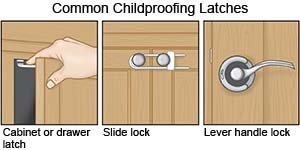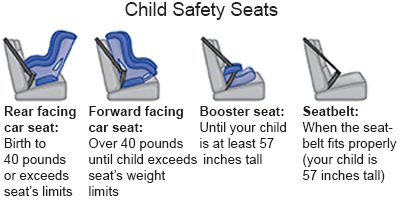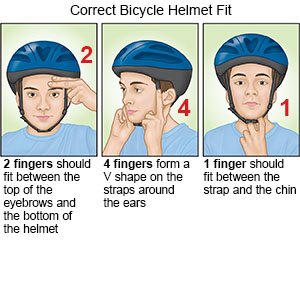Post Concussion Syndrome in Children
Medically reviewed by Drugs.com. Last updated on Apr 6, 2025.
What is post-concussion syndrome (PCS)?
PCS is a group of symptoms that affect your child's body, thinking, and behavior after a concussion. Concussion symptoms usually last up to 4 weeks. PCS means your child still has symptoms after 4 weeks. The risk for PCS is higher if your child has a mood or anxiety disorder.
What are the signs and symptoms of PCS?
Your child may have any of the following from weeks to over a year after the concussion:
- Headaches, vision problems, or seizures
- Poor balance, dizziness, or ringing in the ears
- Problems concentrating, or being forgetful
- Sleep problems, or always being tired
- Personality changes
- Sensitivity to light or noise
- Depression, anxiety, or irritability
How is PCS diagnosed?
Your child's healthcare provider will ask about your child's symptoms. Tell the provider when symptoms began and if anything makes them better or worse. Your child may need any of the following:
- A neurologic exam is used to test your child's memory and concentration. It will also show healthcare providers your child's eye, verbal, and muscle responses.
- Balance testing may be used to check your child's muscle coordination. Balance problems can be a sign of PCS.
- CT or MRI pictures may show an injury. Your child may be given contrast liquid to help the injury show up better in the pictures. Tell the healthcare provider if your child has ever had an allergic reaction to contrast liquid. Do not let your child enter the MRI room with anything metal. Metal can cause serious injury. Tell the provider if your child has any metal in or on his or her body.
How is PCS treated?
Treatment is aimed at relieving symptoms. Your child's healthcare provider will tell you how long to give pain medicines to relieve your child's headache. Your child may develop a condition called a rebound headache if pain medicine continues for too long.
- Acetaminophen decreases pain and fever. It is available without a doctor's order. Ask how much to give your child and how often to give it. Follow directions. Read the labels of all other medicines your child uses to see if they also contain acetaminophen, or ask your child's doctor or pharmacist. Acetaminophen can cause liver damage if not taken correctly.
- NSAIDs , such as ibuprofen, help decrease swelling, pain, and fever. This medicine is available with or without a doctor's order. NSAIDs can cause stomach bleeding or kidney problems in certain people. If your child takes blood thinner medicine, always ask if NSAIDs are safe for him or her. Always read the medicine label and follow directions. Do not give these medicines to children younger than 6 months without direction from a healthcare provider.
- Antidepressants may be given for depression or sleep problems.
- Migraine medicines may be given for migraine headaches.
What can I do to manage my child's PCS?
- Follow directions for rest and activity. Your child's healthcare provider will give directions for the amount of rest your child needs. The directions will include when it is okay for your child to return to school and physical activity. Do not let your child play sports until his or her provider says it is okay.
- Healthcare providers and officials at your child's school will create a return to school plan. The plan will be based on your child's age and symptoms. Talk to officials at your child's school about the concussion. Your child may have attention or memory problems that he or she did not have before the concussion. Schoolwork may trigger your child's symptoms or make them worse. He or she may need shorter school days, extra time for tests, and help finishing homework.
- Take your child to therapy as directed. A cognitive behavioral therapist teaches your child skills to help with any thinking and behavior problems. An occupational therapist teaches your child skills to help with daily activities.
What can I do to help my child prevent another concussion?
A concussion that happens before the brain heals can cause a condition called second impact syndrome (SIS). SIS can cause your child's brain to swell. Even after your child's brain heals, more concussions increase the risk for health problems later. The following can help prevent another concussion:
- Make your home safe for your child. Home safety measures can help prevent head injuries that could lead to a concussion. Put self-latching gates at the bottoms and tops of stairs. Screw the gate to the wall at the tops of stairs. Install handrails for every staircase. Put soft bumpers on furniture edges and corners. Secure heavy furniture, such as a dresser or bookcase, so your child cannot pull it over.

- Make sure your child uses a proper car seat, booster seat, or seatbelt every time he or she travels. This helps decrease your child's risk for a head injury if he or she is in a car accident.

- Have your child wear protective sports equipment that fits properly. A helmet is not a guarantee against a concussion, but it can help decrease the risk. Have your child wear the proper helmet for each activity, such as bike riding or skateboarding. Your child will need specific helmets for sports, such as football. Ask for more information about how to prevent sports concussions.

Call your local emergency number (911 in the US) if:
- Your child has a seizure.
- Your child has trouble breathing.
- Your child is not responding, or you cannot wake him or her.
Seek immediate care if:
- Your child has a sudden headache that seems different or much worse than his or her usual headaches.
- Your child cannot stop vomiting.
- Your child has a sudden change in vision, or his or her pupils are different sizes.
When should I call my child's doctor?
- Your child has nausea or is vomiting.
- Your child has trouble concentrating, speaking, or thinking.
- Your child's symptoms get worse.
- You have questions or concerns about your child's condition or care.
Where can I find more information?
- Brain Injury Association
1608 Spring Hill Road
Vienna , VA 22182
Phone: 1- 703 - 761-0750
Phone: 1- 800 - 444-6443
Web Address: http://www.biausa.org
Care Agreement
You have the right to help plan your child's care. Learn about your child's health condition and how it may be treated. Discuss treatment options with your child's healthcare providers to decide what care you want for your child. The above information is an educational aid only. It is not intended as medical advice for individual conditions or treatments. Talk to your doctor, nurse or pharmacist before following any medical regimen to see if it is safe and effective for you.© Copyright Merative 2025 Information is for End User's use only and may not be sold, redistributed or otherwise used for commercial purposes.
Learn more about Post Concussion Syndrome
Treatment options
Care guides
Further information
Always consult your healthcare provider to ensure the information displayed on this page applies to your personal circumstances.
